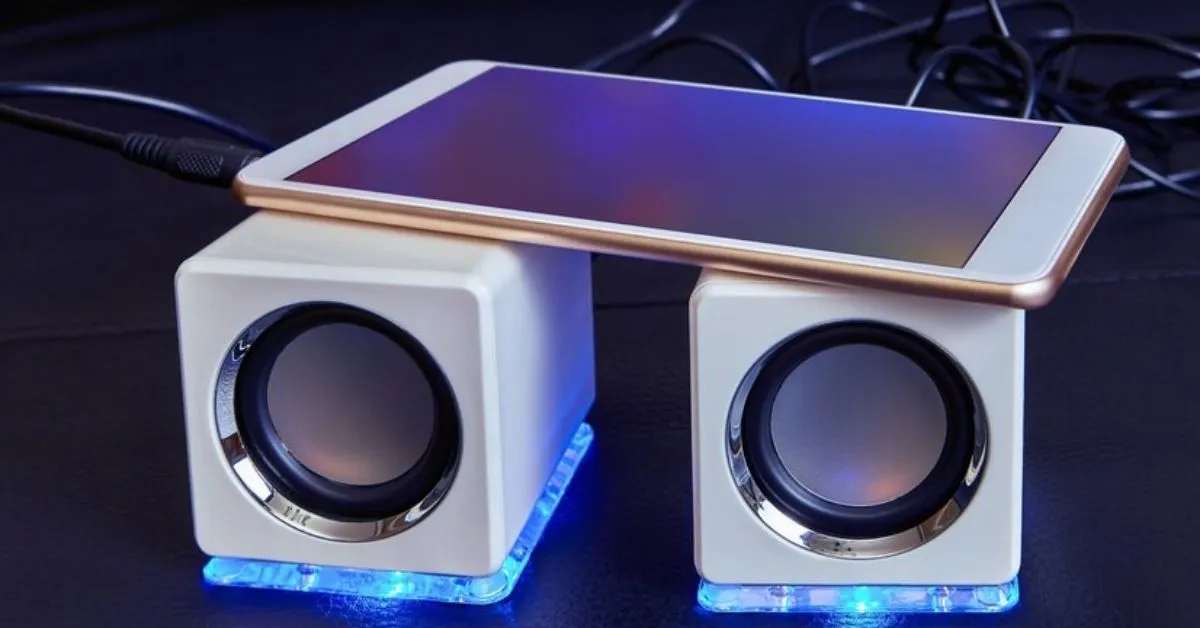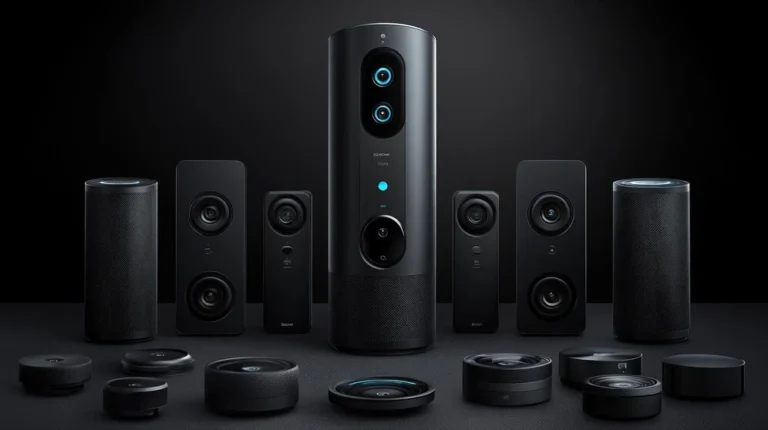Why Does My Samsung Gigablast Sound Bad? A Complete Guide to Troubleshooting and Fixes
Samsung has earned a stellar reputation for producing high-end tech gadgets that often exceed user expectations in performance, visuals, and features. However, when it comes to sound quality, some Samsung users, particularly those using the Samsung Gigablast internet service, may be left disappointed. Despite the device’s impressive specifications and advanced features, audio issues like distortion, low volume, or lag can sometimes ruin the experience.
If you’ve noticed that your Samsung Gigablast sound is not as great as expected, you’re not alone. There are several potential reasons why this happens, from hardware defects to network-related issues. But don’t worry! In this comprehensive guide, we’ll walk you through everything you need to know about why your Samsung Gigablast sound might be bad and what steps you can take to improve it. Whether you’re streaming music, watching videos, or engaging in a video call, this guide will help you troubleshoot and enhance your audio experience.
Why is My Samsung Gigablast Sound Bad?
Samsung Gigablast is known for offering incredibly fast internet speeds and excellent performance for streaming, gaming, and browsing. However, when it comes to audio, users may sometimes experience issues such as sound distortion, poor clarity, or even complete loss of sound. These audio glitches can be frustrating, especially if you’re relying on your device for entertainment, video calls, or work.
The first question that comes to mind when you face such issues is: Why does my Samsung Gigablast sound bad? The answer can vary depending on several factors, including hardware problems, software glitches, or network issues. Below, we’ll discuss some of the most common causes and provide actionable solutions to help you resolve these issues.
Common Causes of Poor Sound Quality
Before diving into solutions, it’s important to understand the potential causes of poor sound quality on your Samsung Gigablast. Sound problems aren’t always related to the device itself — they could be due to improper settings, outdated software, or network issues. Here are some common reasons why your Samsung Gigablast sound might not be up to par:
Faulty Speakers
One of the first things people think of when they experience bad sound is the possibility of faulty hardware. Over time, exposure to dust, moisture, or physical impacts can damage the internal speakers of your Samsung device, leading to distorted or muffled sound. If your device has been exposed to these conditions, it could be the reason why the sound quality has degraded.
Outdated Software
Sometimes, the issue may not be hardware-related at all. An outdated version of the software or firmware on your Samsung device can affect how sound is processed. Software updates often include fixes for bugs that could be causing your audio problems, so it’s essential to ensure your device is up to date.
Incorrect Sound Settings
Many Samsung devices come with a variety of sound options and equalizer settings, which can be customized for different needs. If your sound settings aren’t properly configured, even a high-quality speaker can produce poor sound. It’s important to double-check your sound preferences and make sure everything is set to the optimal settings for your listening environment.
Bluetooth Interference
If you’re using Bluetooth headphones or external speakers, a weak or unstable connection could lead to distortions, lag, or poor sound quality. Bluetooth interference can result in skipping, crackling, or overall degraded audio performance. Ensuring a stable connection between your Samsung device and Bluetooth accessories is crucial for optimal sound.
Is It a Hardware Issue?
While most sound issues can be fixed with software tweaks or settings adjustments, sometimes the problem is more serious and requires hardware intervention. If you suspect a hardware issue, there are two main things you need to check:
Damaged Speakers
Speakers are the most important hardware component when it comes to audio quality. If your device has been exposed to dust, moisture, or physical impact, there’s a chance the internal speakers may have been damaged. Over time, wear and tear can cause the speakers to lose their clarity, resulting in muffled or distorted audio.
If you notice that the sound is faint or completely absent, it’s possible that your speakers are damaged. In such cases, getting the speakers repaired or replaced might be the only solution.
Loose Internal Connections
Another hardware-related issue that could cause sound problems is loose internal connections. A drop or physical impact on the device can disrupt the internal wiring or cause connections to come loose, leading to audio malfunctions. If you’ve recently dropped your Samsung device or noticed any external damage, it’s worth checking the internal components.
The Role of Software Glitches in Audio Quality
In many cases, poor sound quality is a result of software glitches rather than hardware failure. These glitches can stem from outdated software, bugs, or improper configuration of sound settings. Fortunately, fixing these issues is often as simple as updating the firmware or resetting the sound preferences.
How Software Can Impact Sound
Think of the software on your device as a recipe for making a delicious dish. Even if you have the best ingredients (hardware), if the recipe (software) is flawed, the final result won’t be great. Similarly, even the best hardware in your Samsung device may underperform if the software isn’t properly configured or up-to-date.
By ensuring that your device is running the latest software version, you can avoid many common audio problems caused by software glitches.
Updating Your Firmware
Firmware updates are released by Samsung to improve device performance, fix bugs, and optimize the overall user experience. These updates often include fixes for audio-related issues, so it’s important to check if your device is running the latest version. Go to your device’s settings and check for available updates under the software section.
How Network Problems Affect Samsung Gigablast Sound
One unique aspect of Samsung Gigablast is its speed, designed to support high-bandwidth activities like streaming, gaming, and large downloads. However, if your internet connection is unstable or has frequent drops, it can cause disruptions in audio playback.
The Importance of a Stable Internet Connection
A fast and stable internet connection is essential for smooth audio and video streaming. If you’re using Samsung Gigablast for streaming content and experiencing audio issues, a poor connection could be the culprit. Slow speeds, network congestion, or frequent interruptions can lead to sound lags, buffering, or distortion.
How Poor Network Can Cause Sound Distortion
When your internet connection is unstable, it can cause lag or buffering during audio and video streaming. This can result in distorted sound, pauses, or complete interruptions in audio. If you primarily face sound issues while using online services, your network connection should be the first thing you check.
How to Troubleshoot Samsung Gigablast Sound Issues
If you’re dealing with poor sound quality, here are some practical troubleshooting steps you can follow to resolve the issue:
Restart Your Device
Sometimes, sound problems can be caused by temporary glitches. A simple restart can often clear these glitches and restore your audio quality. Power off your Samsung device, wait for a few seconds, and then power it back on.
Check for Software Updates
Make sure that your device is running the latest version of its software. Updates often include fixes for bugs or performance improvements that can resolve sound-related issues. Go to your device’s settings and check for any available software updates.
Adjust Sound Settings
Take a moment to explore your sound settings and ensure they are optimized for your needs. Samsung devices often have an equalizer and other sound-enhancing features that can be adjusted to improve audio performance.
Reset Sound Preferences
If you’ve accidentally altered your sound preferences, resetting them to default may resolve the issue. This will ensure that no settings are interfering with your device’s audio performance.
Check Bluetooth Interference
If you are using Bluetooth devices for audio, check to ensure that your Bluetooth connection is stable. Disconnect any unnecessary devices and reconnect your Bluetooth headphones or speakers to see if the sound quality improves.
Optimizing Sound Settings on Your Samsung Device
To ensure the best sound experience on your Samsung device, it’s crucial to optimize the sound settings. Here are some tips for customizing your settings based on your needs:
Best Settings for Music
- Equalizer: Boost the bass or treble depending on your music preferences. Adjusting the equalizer can greatly enhance your listening experience, especially if you’re into specific genres like rock, pop, or classical.
- Surround Sound: Activating surround sound can help make your music or movie experience more immersive, creating a fuller, richer audio environment.
Best Settings for Calls and Voice Quality
- Noise Reduction: This feature can help reduce background noise during calls, ensuring that your voice is clearer and more intelligible.
- Volume Limits: Make sure your volume settings aren’t too low, as this can prevent you from hearing calls and audio clearly. Check the call volume settings and adjust accordingly.
When to Contact Samsung Customer Support
If you’ve followed all the troubleshooting steps and your Samsung Gigablast sound is still problematic, it may be time to reach out to Samsung’s customer support team. They can help identify if the issue is hardware-related or if there’s an underlying software bug that needs to be fixed.
When contacting customer support, be sure to provide as many details as possible about the issue you’re experiencing. This will help them offer a more specific solution, whether it’s a software update, a repair, or a replacement.
The Future of Samsung Audio Technology
Samsung has already made significant advancements in audio technology, with newer models featuring Dolby Atmos and other sound-enhancing technologies. As the company continues to evolve, we can expect even greater improvements in both hardware and software, resulting in a more immersive and high-quality audio experience for users.
Conclusion
Poor sound quality on your Samsung Gigablast doesn’t have to ruin your tech experience. Whether the issue lies with faulty hardware, outdated software, or network problems, troubleshooting these common causes can help restore your audio quality. By following the troubleshooting steps, optimizing your sound settings, and ensuring that your device is up to date, you can enjoy a clearer, more immersive audio experience on your Samsung device.
If the issue persists despite all efforts, don’t hesitate to reach out to customer support for further assistance. With a little effort, you’ll be back to enjoying high-quality sound in no time.
This comprehensive guide should help you better understand why your Samsung Gigablast sound might be bad and what you can do to fix it. From simple tweaks in software settings to more complex solutions like hardware repair, you now have the tools to troubleshoot and enjoy a superior audio experience.
FAQs
Why does my Samsung Gigablast sound distorted?
Sound distortion can be caused by faulty speakers, outdated software, or network instability.
How can I improve the audio quality on my Samsung device?
Adjusting sound settings, updating software, and ensuring a stable Bluetooth or network connection can improve audio.
Is my Samsung Gigablast speaker broken if the sound is bad?
Not necessarily; it could be a software glitch, incorrect settings, or network issues rather than a hardware problem.
How do I fix lag or delays in sound on Samsung Gigablast?
Check your internet connection, restart the device, and ensure software updates are installed to fix audio lag.
When should I contact Samsung support for sound problems?
If troubleshooting steps don’t resolve the issue, contact support for potential hardware repairs or more specific solutions.







